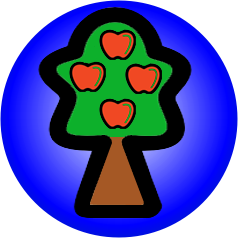|
|
|
|
|
|
|
|

|
Essential oil from cedar wood is said to be one of the first crude essential oils to be extracted, and it was one of the oils that the Egyptians used for embalming purposes. Atlas cedar oil is used in many perfumes and soaps and is used as an insect-repellant. It is believed to produce a calm, meditative state of mind, and has the ability to relieve nervous tension, anger, and stress. It is used aromatherapy for treating a number of conditions including acne, arthritis, bronchitis, coughing, cystitis, dandruff, dermatitis and stress.
Top |
|
|
 |
The Atlas cedar does not grow naturally in our region, although its close relative, the Lebanese cedar, does. It originates from the Atlas Mountains in Algeria and Morocco where it grows at elevations of 1500-2500 m forming single-species forests, or as part of mixed forests together with species of fir, juniper, oak, and maple. The Atlas cedar is a hardy tree tolerant to cold that can grow in various types of soil and prefers full sunlight. It is a fast growing species used for ornamental purposes and afforestation in temperate zones of Europe and North America, but also in semi-arid Mediterranean regions.
Top |
|
|
|
|
 |
In 1898 when Herzl visited Jerusalem he planted a cypress (that he called a cedar) in the village of Motsa, on the outskirts of Jerusalem. He wrote in his diary: “I planted a cedar tree on the slope of Broza’s plot, and Wolfson planted a palm sapling. A few Arabs assisted us as did the settlers Broza and Katz. We returned to Jerusalem late at night”. Herzl and his companions believed that he had planted a cedar, so the place was named Arza, from the Hebrew word erez, which means cedar. Although botanical testing conducted many years later proved the tree was actually a cypress, the name remained. Herzl's tree did not last long; in 1915 it was chopped down and burned. The farmer Shmuel Broza suspected that the Ottoman authorities did it to hurt Jewish settlement. All attempts to save the tree failed, but the stump became an important Zionist symbol. The stump is now enclosed in reinforced glass at the original site where it was planted.
Top |
|
|
|
 |
Some scientists regard the Atlas cedar as a subspecies of the Lebanese cedar, a native species to this area: it is the national symbol of Lebanon. The cedar is mentioned often in Jewish sources, usually as a symbol of strength. In Psalms only God has the strength to destroy cedars: “The voice of the LORD breaketh the cedars; yea, the LORD breaketh in pieces the cedars of Lebanon” Psalms 29, 5. In another chapter in Psalms the righteous are likened to cedars: “The righteous shall flourish like the palm-tree; he shall grow like a cedar in Lebanon.” Psalms 92, 13.
Top |
|
|
|
|
|
The wood of both the Atlas and the Lebanese cedar is considered excellent for building: their timber is strong and resistant to insects and decay. This is probably why it is mentioned in this context in the Bible, when King Solomon requested cedar trees from Tyre for building the Temple, as their wood was known for its strength: “And Solomon sent to Huram the king of Tyre, saying: ‘As thou didst deal with David my father, and didst send him cedars to build him a house to dwell therein’… Send me also cedar-trees, cypress-trees, and sandal-wood, out of Lebanon…” 2 Chronicles 2, 2-7.
Top |
|
|
|
 |
Pictures |
